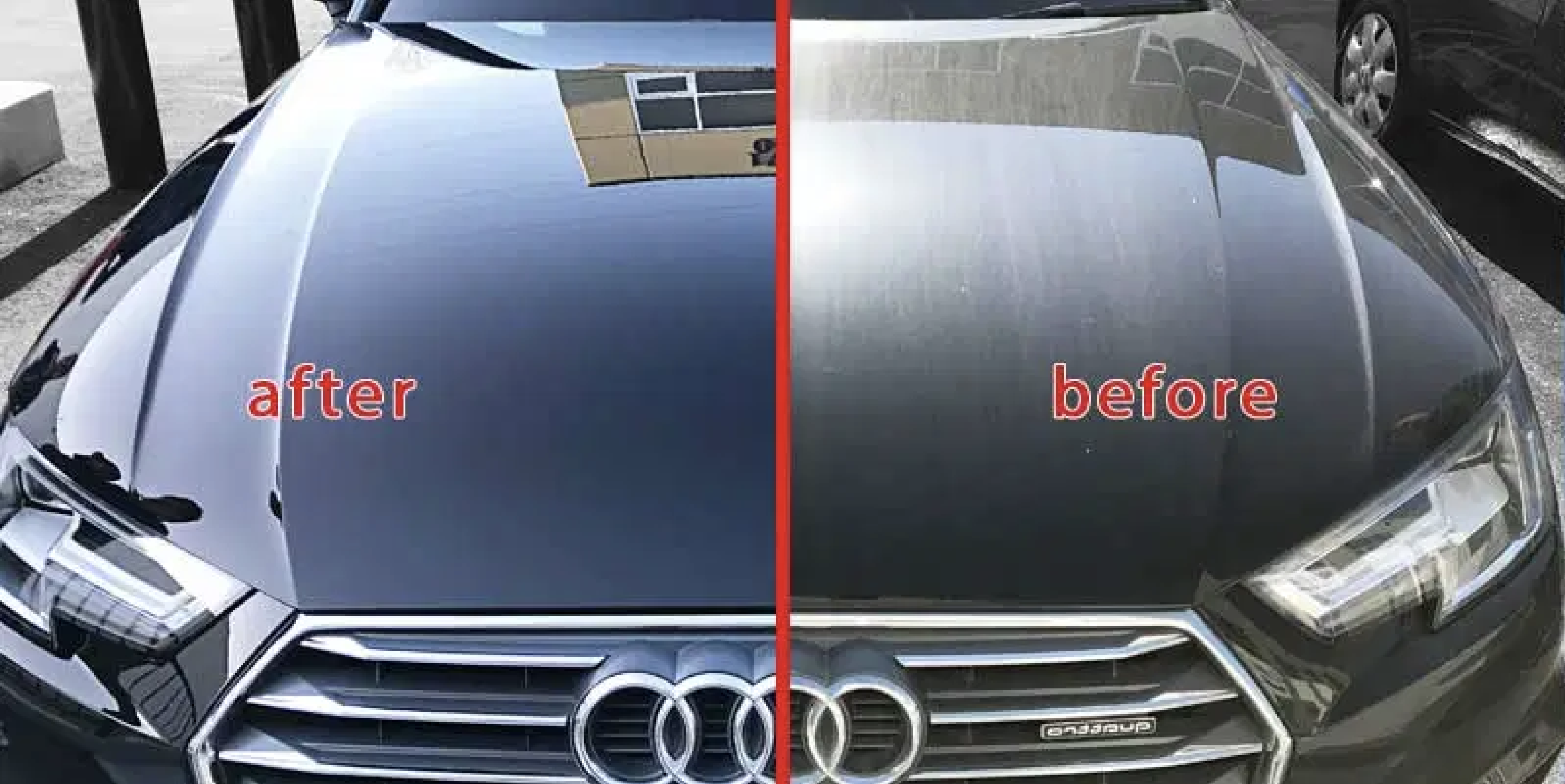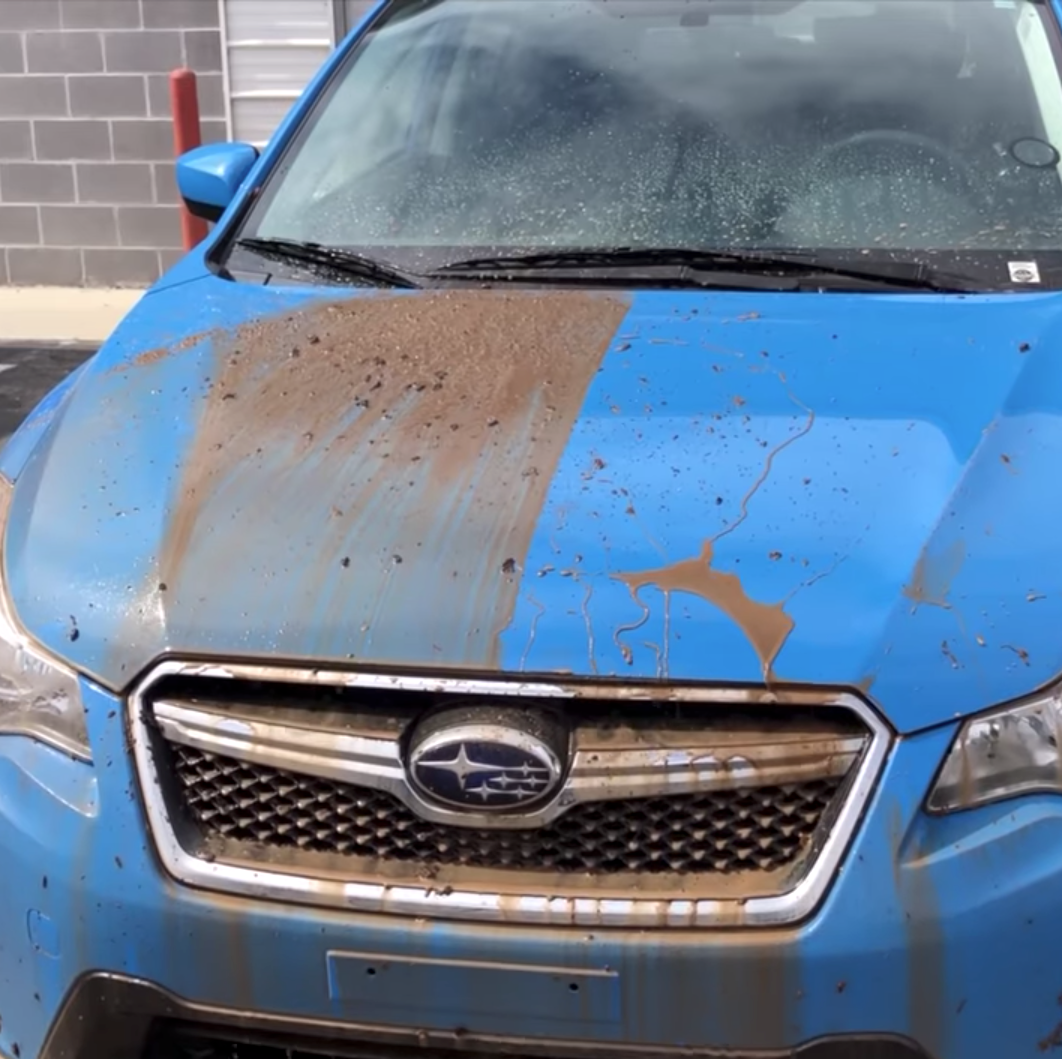The Beginner’s Guide to Final Touch Auto Works Ceramic Coatings
The Beginner’s Guide to Final Touch Auto Works Ceramic Coatings
Blog Article
The Ultimate Overview to Ceramic Coatings: Enhancing Your Auto's End up and Toughness
Ceramic finishes could be the solution you've been searching for if you're looking to boost your cars and truck's appearance and protection. These innovative finishes bond with your vehicle's paint, producing a resilient obstacle versus environmental damages. Yet exactly how do they stack up against typical wax? Comprehending the advantages and application procedure can make a significant difference in your automobile care routine. Let's discover what makes ceramic layers a rewarding financial investment for your car.
What Are Ceramic Coatings?
Ceramic coatings are innovative safety layers that boost your cars and truck's outside. They're made from a liquid polymer that chemically bonds with your car's paint, creating a sturdy guard. Unlike typical wax or sealers, which subside gradually, ceramic finishings give long-lasting security versus environmental contaminants like UV rays, dust, and chemicals.When you apply a ceramic coating, you're buying an obstacle that drives away water, making it simpler to cleanse your automobile and keeping it looking newer for longer. This technology aids maintain the stability of your paint, reducing the threat of scratches and oxidation.Ceramic finishings come in different formulations, each made to provide to different demands and preferences. You can choose a DIY kit or choose for professional application, relying on your convenience level and spending plan. In general, ceramic coverings stand for a cutting-edge remedy for preserving your lorry's visual allure and durability.
Advantages of Ceramic Coatings
You expose an array of advantages that go beyond plain visual appeals when you spend in a ceramic finish. To start with, it gives outstanding defense against environmental impurities like dirt, bird droppings, and UV rays, maintaining your cars and truck's paint looking brand-new much longer. You'll see that maintenance comes to be less complicated, as the hydrophobic buildings cause water and grime to move off easily. This indicates much less time invested washing and outlining your vehicle.Additionally, ceramic finishes can enhance the glossiness of your auto's finish, giving it that showroom luster. They likewise use resistance to scrapes and swirl marks, which helps maintain your vehicle's resale value. With a ceramic finishing, you're not simply safeguarding your financial investment; you're additionally boosting its general look and longevity. Eventually, this sophisticated modern technology assurances your cars and truck stands out while enjoying lasting benefits that traditional waxes just can't match.
The Application Process: Just How to Use Ceramic Coatings
Applying a ceramic finish entails several crucial actions to ensure excellent results. Extensively clean your cars and truck to eliminate any dirt, crud, or impurities. This guarantees the surface is prepared and tidy for the finish. Next, decontaminate the paint using a clay bar to get rid of embedded particles. Afterward, check the paint for flaws and polish it to achieve a smooth surface.Once your car's surface is prepped, apply the ceramic coating in tiny sections. Utilize an applicator pad to spread out the covering equally, complying with the producer's directions. Permit the finishing to cure for the recommended time, usually between one to 2 hours, depending upon the product.Finally, stay clear of cleaning your automobile for a minimum of a week to allow the covering bond effectively. Following these actions will aid you achieve a long lasting, high-gloss finish that secures your vehicle for several years to find.

Contrasting Ceramic Coatings to Standard Wax
After guaranteeing your automobile's surface is completely prepped with a ceramic layer, it's time to contemplate exactly how this modern-day solution stacks up versus traditional wax. Ceramic finishes provide a robust layer of security that lasts for several years, while wax generally offers just a few weeks of sparkle. You'll notice that ceramic coatings bond with your paint, producing a hydrophobic surface area that wards off water and dirt, making upkeep easier.In comparison, conventional wax rests on top of the paint and requires constant reapplication. With ceramic coatings, you get superior scratch resistance and UV security, assisting to stop fading and oxidation. While the first financial investment for a ceramic covering is greater, the lasting advantages usually outweigh the expenses. If you're looking for longevity and boosted gloss, ceramic coatings are a wise option over traditional wax.
Maintenance Tips for Your Ceramic Covered Automobile
To maintain your ceramic-coated car looking beautiful, regular maintenance is important. Begin with a gentle laundry utilizing a pH-balanced shampoo; avoid harsh cleaning agents that can break down the finish. Make use of a microfiber clean mitt to stop scratches and always wash extensively to get rid of any kind of soap residue.After cleaning, dry your vehicle with a soft microfiber towel to avoid water places. Consider using a ceramic upkeep spray every few months to boost the finish's hydrophobic residential or commercial properties and add an added layer of protection.It's additionally important to prevent automatic car cleans with unpleasant brushes, as they can damage the covering. Instead, select hand washes or touchless clean alternatives. Additionally, consistently check your car for impurities like tree sap or bird droppings and address visit site them promptly to avoid etching. Complying with these suggestions will certainly assist keep the shine and durability of your ceramic-coated automobile for years to come.
Typical Misconceptions About Ceramic Coatings
Regardless of the impressive advantages of ceramic coatings, numerous myths can produce complication for automobile proprietors. One common misconception is that ceramic finishes eliminate the requirement for upkeep. While they do offer improved security, normal washing and treatment are still necessary to maintain that high-gloss finish.Another myth is that these finishings are scratch-proof. While they offer a strong layer of protection against small scrapes, they can her explanation not stand up to extreme impacts or rough materials.Many also believe that ceramic coverings will make their vehicles immune to all contaminants. In truth, they ward off dust and water yet will not stop problems like bird droppings or tree sap from creating damages if left unattended.Lastly, some assume that using ceramic coatings is a DIY task anybody can take care of, yet attaining a remarkable application often requires professional expertise to assure peak results.
Picking the Right Porcelain Coating for Your Automobile
Just how do you pick the appropriate ceramic finishing for your vehicle? Begin by thinking about the degree of security you need. If your car faces rough climate or frequent trip, select a premium covering that offers exceptional sturdiness and resistance to scratches, UV rays, and chemical stains.Next, consider the application approach. Some layers need professional installment, while others are DIY-friendly. If you're experienced, a do it yourself product could save you cash, however for the most effective results, a specialist can guarantee correct application.Don' t fail to remember to examine the longevity of the covering. Some last a couple of years, while others can secure for a decade or even more. Check out testimonials and reviews to gauge customer complete satisfaction. By considering these elements, you'll discover a ceramic covering that not only boosts your vehicle's look yet also offers durable protection.
Often Asked Concerns
For How Long Do Ceramic Coatings Last on Average?
Ceramic layers generally last anywhere from 2 to 5 years, depending on elements like application, maintenance, and environmental conditions. You'll wish to adhere to proper care routines to maximize their long life and performance.
Can Porcelain Coatings Be Applied Over Paint Scratches?
You can not use ceramic coverings over paint scratches efficiently. It's finest to fix any type of scrapes initially, guaranteeing a smooth surface area - Final Touch Auto Works Ceramic Coatings. This method, the layer bonds correctly and offers optimal security for your lorry's finish
Are Ceramic Coatings Safe for All Cars And Truck Surface areas?
Ceramic layers are normally risk-free for many auto surfaces, consisting of paint, glass, and wheels. It is crucial to check specific item standards, as some finishings might not be appropriate for particular products or coatings.
Will Porcelain Coatings Protect Against UV Damage?

Can I Do Touch-Ups on Ceramic Coated Surfaces?
You can do touch-ups on ceramic covered surface areas, however it's crucial to utilize compatible products. Validate the area is tidy and comply with correct application techniques to keep the finish's stability and efficiency. Unlike typical wax or sealants, which put on off over time, ceramic coverings give long-lasting security versus environmental contaminants like UV rays, dust, and chemicals.When you use a ceramic covering, you're spending in an obstacle that wards off water, making it less complicated to clean your auto and keeping it looking newer for directory longer (Final Touch Auto Works Ceramic Coatings). Later, evaluate the paint for imperfections and polish it to accomplish a smooth surface.Once your cars and truck's surface is prepped, use the ceramic coating in small sections. Permit the coating to cure for the recommended time, commonly between one to 2 hours, depending on the product.Finally, avoid washing your automobile for at the very least a week to allow the layer bond properly. Think about using a ceramic upkeep spray every couple of months to enhance the finish's hydrophobic residential properties and include an extra layer of protection.It's additionally wise to prevent automated cars and truck cleans with abrasive brushes, as they can damage the coating. Ceramic layers are typically safe for a lot of car surface areas, including paint, glass, and wheels
Report this page